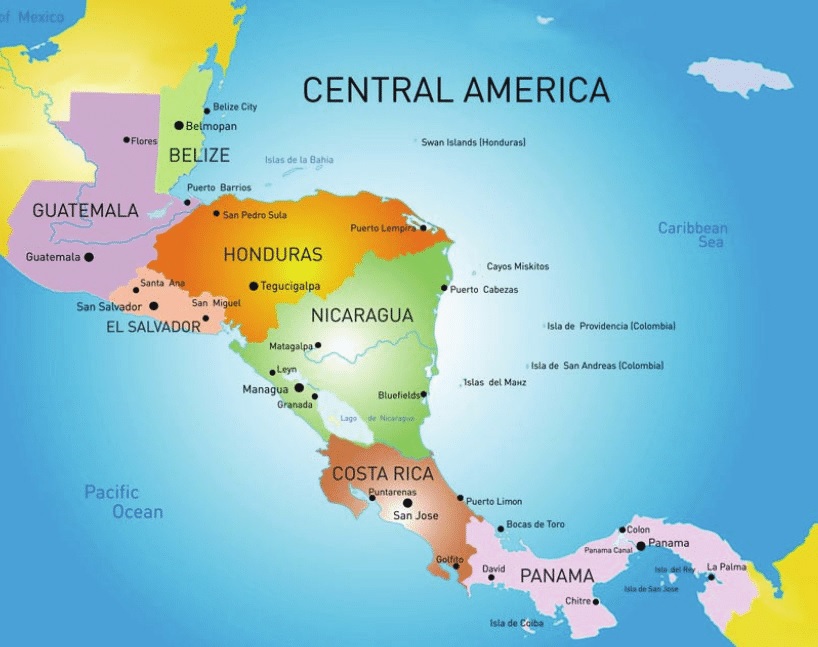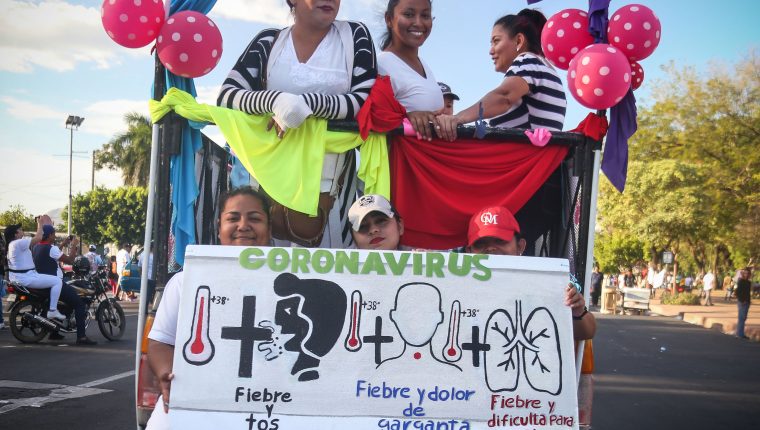RIO DE JANEIRO, BRAZIL – Central America is also facing the coronavirus crisis, with approximately 400 people infected and two deaths so far. Among the countries in the region, the only two reported deaths occurred in Panama – the country in the region with the most cases – and Guatemala.

Initially, Central American governments and citizens took a relaxed approach to the crisis, assuming that high temperatures would help prevent the virus from spreading.
However, today there are daily reports of the pandemic that started in Wuhan, China and has claimed over 3,100 lives there.
So far, El Salvador is one of the countries with no proven infections with the SARS-nCo-2 pathogen; the country has virtually barricaded itself in and is preparing itself with great effort to avert the impending pandemic.
In Belize and Nicaragua, too, the novel coronavirus and the Covid-19 respiratory disease have not yet been detected – but that does not mean that there are no cases of infection.
Honduras methods questioned
In Honduras, 26 people have now tested positive for the novel coronavirus. For the former Minister of Health and infectologist Elsa Palou, however, those infected so far are only the tip of the iceberg. There are surely already thousands of SARS-nCo-2 cases, but they have not yet been diagnosed. She also doubts that the laboratories are sufficiently equipped.
The US$420 million approved by the country’s Congress last week for the expansion of the hospital network is insufficient, she said, because, among other things, protective materials are now required for medical staff rather than hospitals, which will be completed in two years.
In addition, the number of 100 ventilators available is insufficient.
Another 140 ventilators and intensive care devices arrived on Wednesday. Dr. Suyapa Figueroa, chair of the medical faculty, harshly criticized these purchases, saying that they do not meet the minimum requirements that are now needed to care for the affected population.
Last Sunday, Honduran President Juan Orlando Hernández had already declared a state of emergency for the entire national territory, which has been in force since Monday. The borders have been closed for the next seven days. In addition, an unconditional curfew was imposed in the capital Tegucigalpa, and in San Pedro Sula, Choluteca and La Ceiba. Last week, all schools and universities were closed for 14 days.
According to media reports, security forces in Tegucigalpa have entered 240 houses in search of infected individuals, accompanied by medical staff.
Human rights activist Bertha Oliva criticizes the state measures as disproportionate and arbitrary. Journalists are being prevented from carrying out their work. Several attorneys question the undermining of freedom of expression and stress the significance of independent journalistic work in the current situation. According to attorney Joaquin A. Mejía, the curfew represents an authoritarian act.

Meanwhile, in Nicaragua, the left-wing leadership of Daniel Ortega reacted with an appeal for “love” – and demonstrations against the virus. Ortega’s wife and vice president, Rosario Murillo, called on her supporters on Saturday a week ago for a national day of action under the motto “Love in the time of Covid-19”.
The march in the capital, Managua, ran counter to all the advice of virologists on how to stop the spread of the virus in Central America. While other countries in the region are sending their citizens into quarantine, Ortega and Murillo motivated their followers to join in the march, which gathered thousands of people wearing red and black, the colors of the Sandinista ruling class, on Avenida Bolívar, one of the capital’s largest streets.
Daniel Ortega and Rosario Murillo, however, did not take part in the march.
Guatemala, however, reported 17 cases and one death from the Covid-19, and the epidemic has led to a ban on all activities involving crowds.
Costa Rica reported 117 positive cases and Panama reported 245, both countries having performed more tests for coronavirus than other countries in the region.
El Salvador has not reported any confirmed cases to date. According to health authorities, however, 1,900 people have been quarantined as part of preventive measures. In addition, the military has been deployed to prevent the illegal entry of persons from neighboring states across the border.

